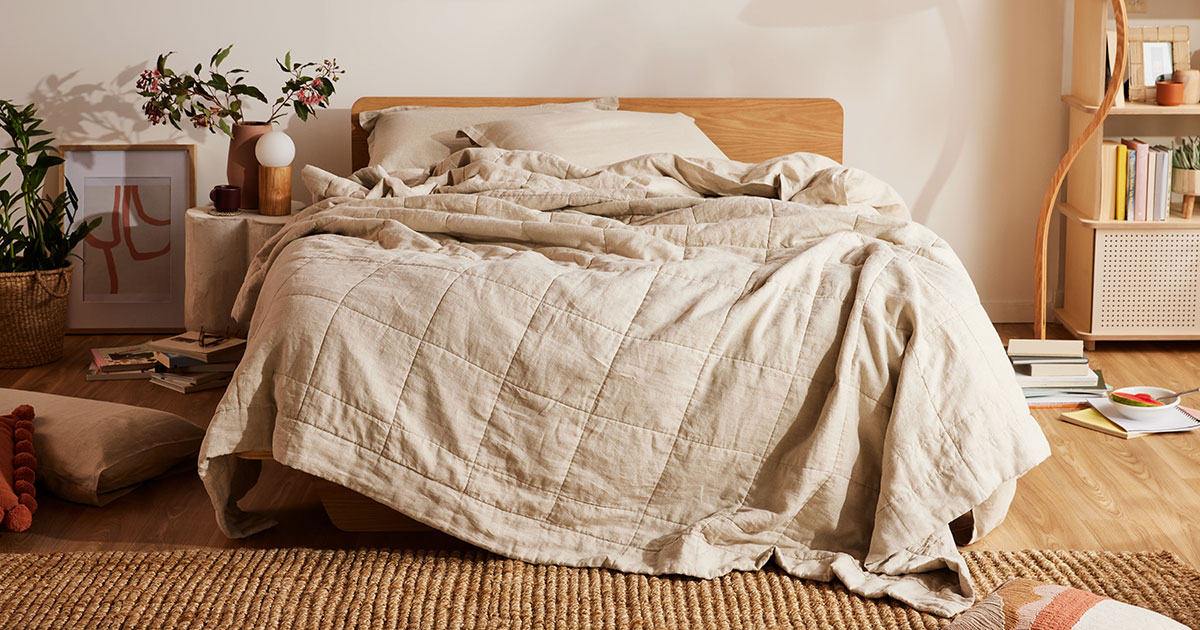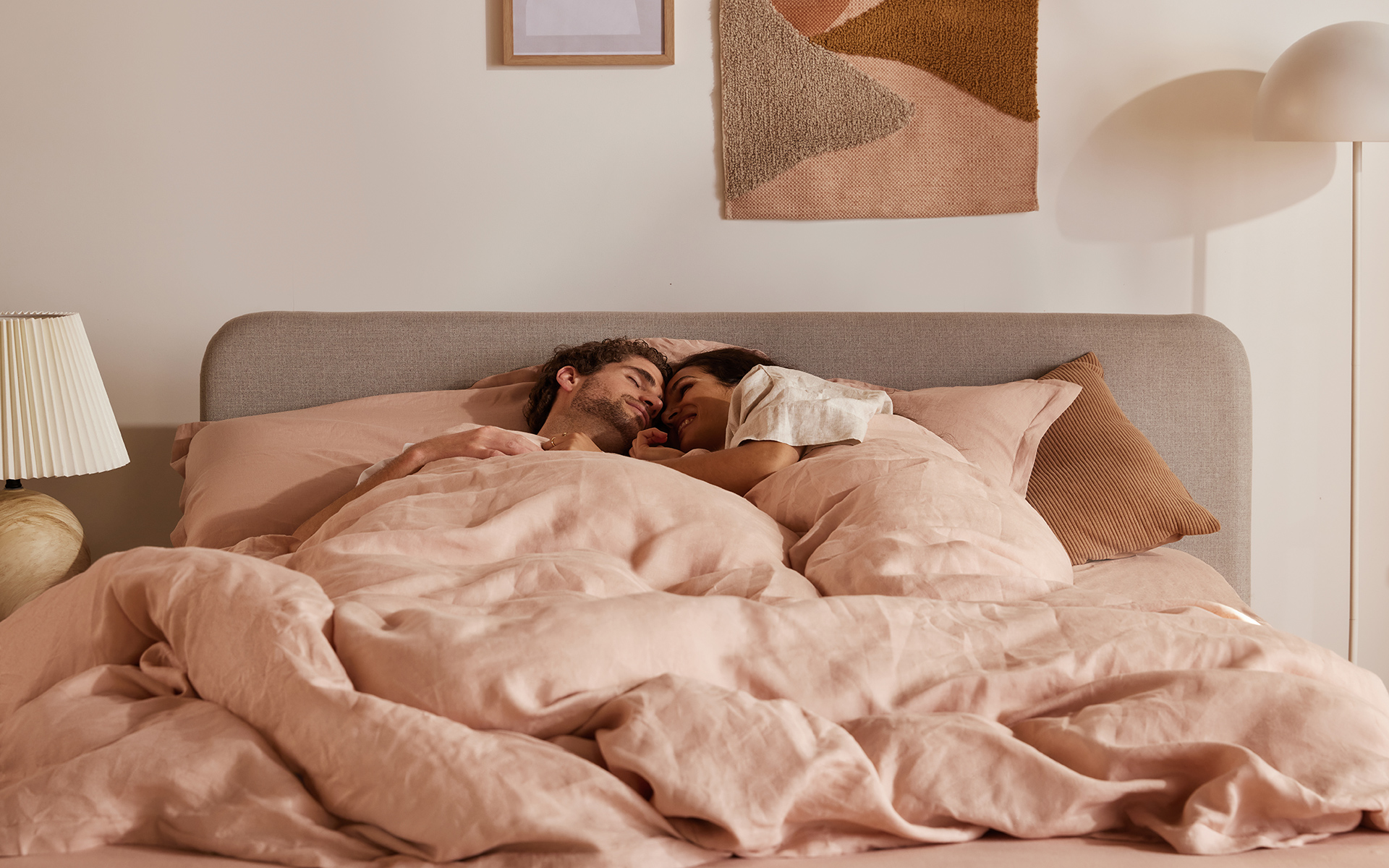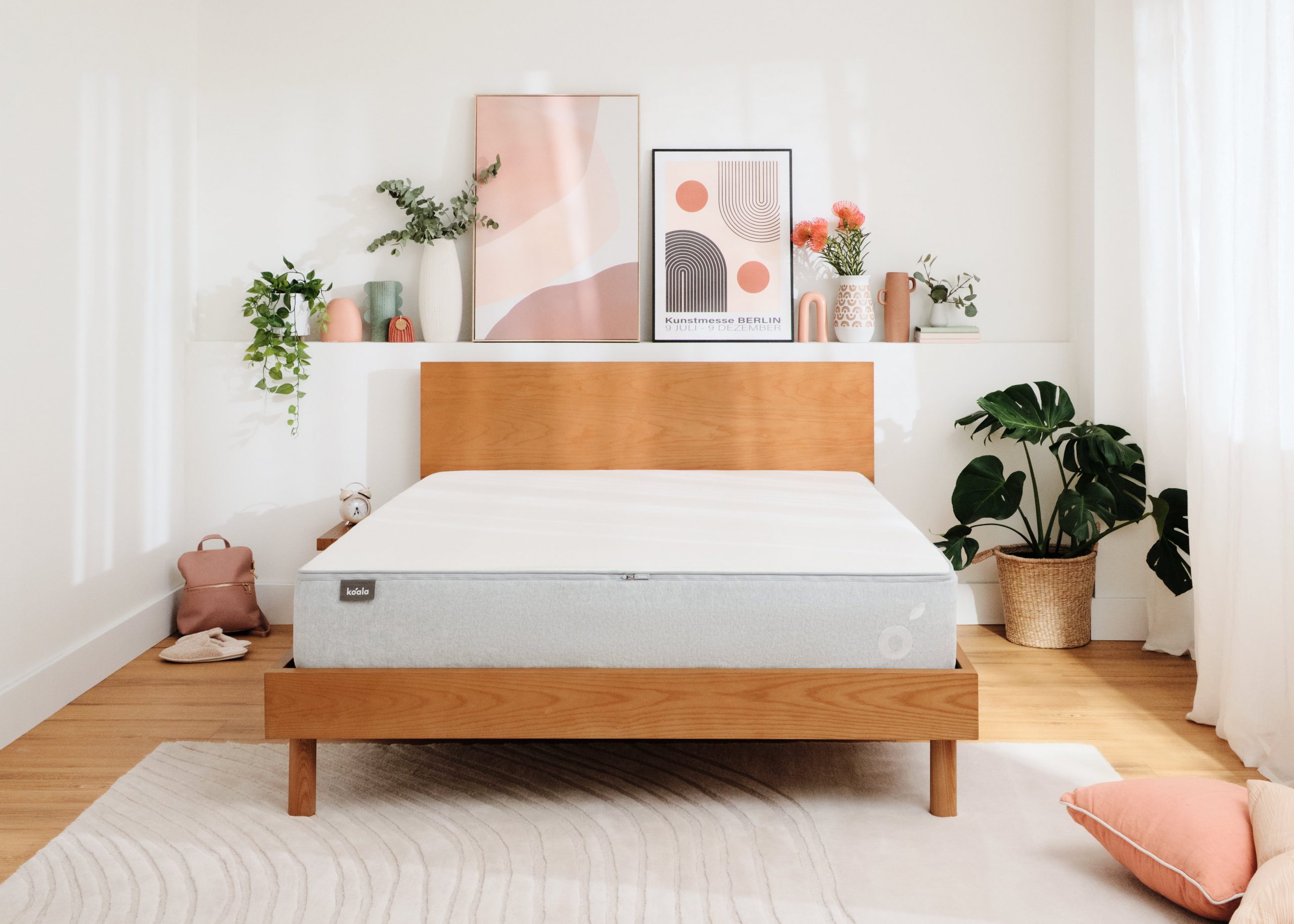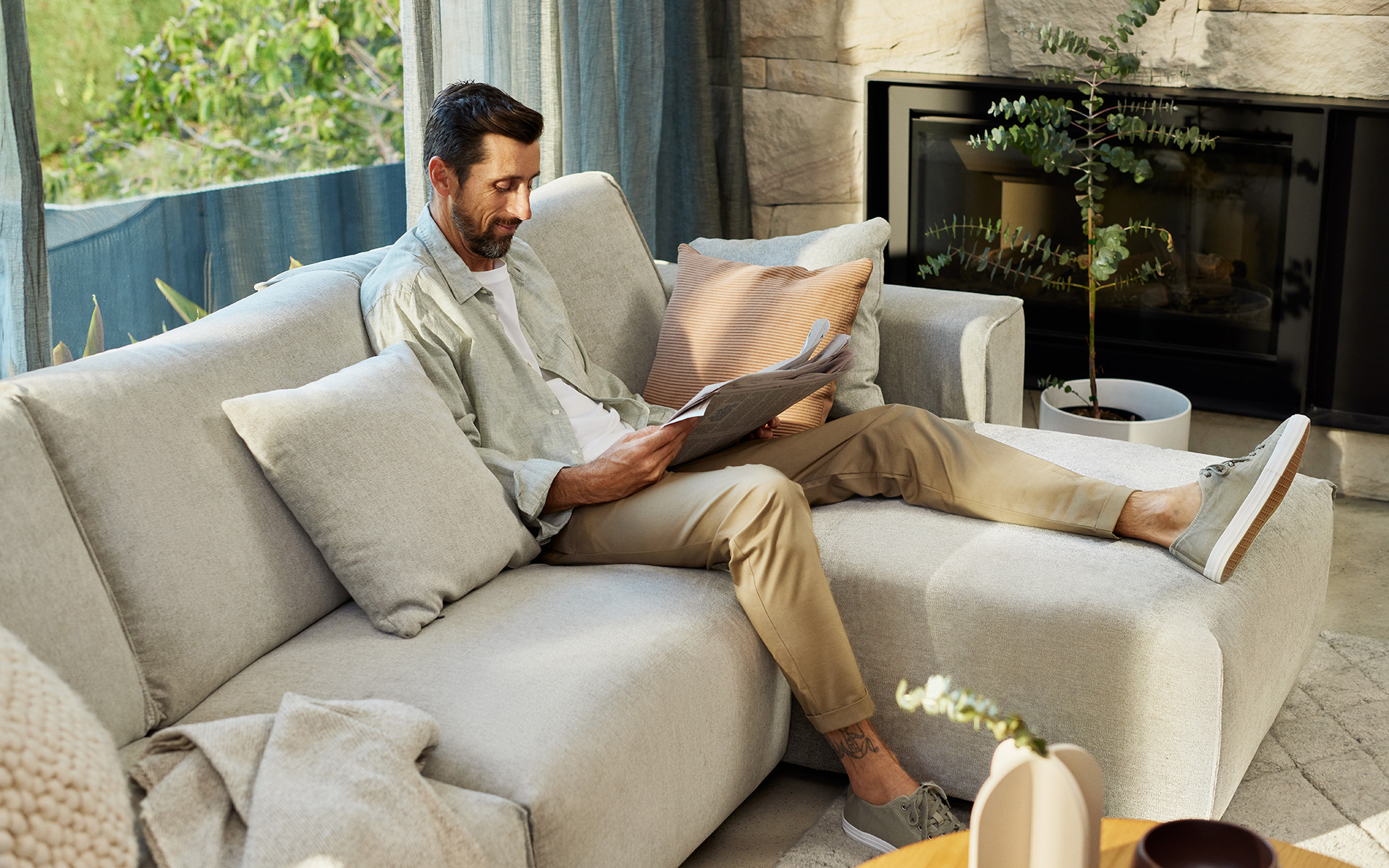Are you finding yourself waking up more than once, needing to go to the bathroom? The Journal of Urology has found that up to 44% of women age 20 to 40 get up to pee at least once a night, while up to 18% pee at least twice a night.
This is what scientists call “nocturia” and while a couple trips to the bathroom may seem harmless, it can lead to fragmented, disrupted sleep, leaving you tired and cranky the next day. It is also important to talk to your doctor because frequent urination can be more than just a nuisance, it can also be a sign of an underlying medical condition.
As we age, our bodies make less of a hormone that allows us to retain fluids, so our bladders fill more rapidly and able to hold less. However, feat not! There are small changes you can make to your sleep routine that you can make for better sleep, and help you stop wondering “why do I pee so much at night?!”.
Limit your intake of fluids two hours before bedtime
Drinking too close to bedtime can cause the need to pee at night. As we get older, we tend not to be able to hold in as much in our bladder. Don’t limit your fluids too much, but it is important to watch what you’re eating and drinking in the last few hours before bed.
Avoid foods and beverages that can irritate your bladder
To prevent nocturia, skip the below foods and beverages in the hours before bed:
💦 Caffeine — caffeine is a diuretic, which increases urine output. Try to only limit this to the mornings
💦 Alcohol — similarly to caffeine, alcohol makes your urine more acidic which can irritate the lining of the bladder, causing you to need to use the bathroom more frequently. Try to limit only 1 per day
💦 Citrus juices
💦 Cranberry juice — though it is recommended as great for bladder health, it can be an irritant if you have Overactive Bladder (OAB)
💦 Spicy foods, like curries
💦 Acidic foods, such as tomatoes and tomato sauces
💦 Chocolate
💦 Artificial sweeteners

Redistribute fluid
If you ever experience your legs or ankles swelling up during the day, the fluid that builds up then gets sent back into the bloodstream when you lie down to sleep, which increases your blood pressure. As a result, the kidneys start working overtime to create more urine so your body can flush the excess fluid out of your system, and consequently causing you to wake up to empty your bladder.
If you ever experience this, the below tips can help redistribute fluid throughout the day:
💦 In the late afternoon, if you prop up your legs for an hour at the level of your heart, this can help you urinate during the day (rather than at night). Or do this periodically during the day
💦 Use Compression Socks. These elastic stockings exert pressure against the leg while decreasing pressure on the veins, allowing fluids to be redistributed and reabsorbed into the bloodstream.
Double-void before bed
A certified urologist, Melody Denson advises to double-void, or urinate twice, right before bed. “Go to the bathroom, then brush your teeth and go through the rest of your bedtime routine,” she says. “Then, just before you’re about to lie down, even if you don’t feel like you have to go, try to urinate and see if you can squeeze out another tablespoon or so.”
Do Kegal exercises
Kegal exercises strengthen your pelvic floor muscles which support your uterus, bladder, small intestine and rectum. Done regularly, these exercises can help control on overactive bladder as it triggers a reflex mechanism to relax the bladder.
You can learn what a Kegel exercise feels like by starting, then stopping, your urine stream. Start with three sets of 8-12 contractions. Hold them for 6 to 10 seconds each, and perform these three to four times per week.
Bonus tip: Don’t forget to invest in a good mattress protector to keep your mattress clean and odour-free!



